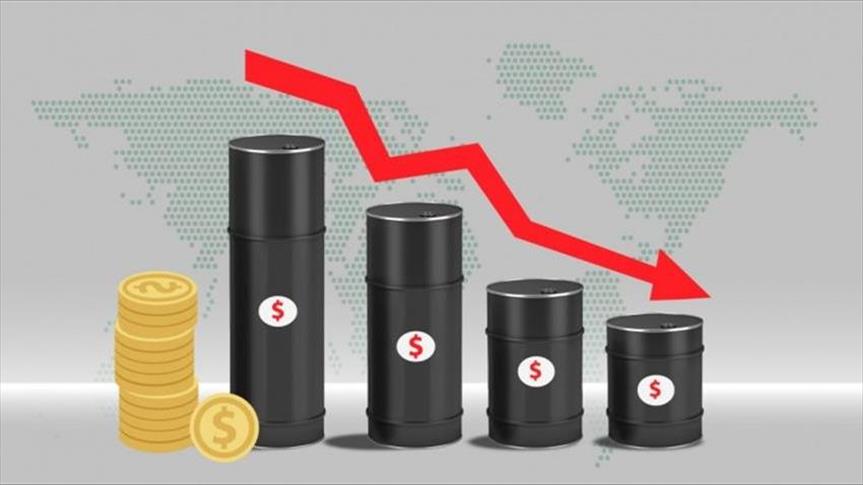Crude oil prices were down on Thursday over the double whammy of an estimated increase in US oil inventories and the widespread escalation of COVID-19 cases that continues to curb oil demand.
International benchmark Brent crude was trading at $55.96 per barrel at 0654 GMT for a 0.21% decrease after closing Wednesday at $56.08 a barrel.
American benchmark West Texas Intermediate was at $53.17 per barrel at the same time for a 0.26% drop after it ended the previous session at $53.31 a barrel.
Late Wednesday, the American Petroleum Institute (API) announced its estimate of a rise of over 2.5 million barrels in US crude oil inventories relative to the market expectation of a 300,000-barrel fall.
If crude stocks increase in line with the API’s expectations, it signals that crude demand is falling in the US, the world's largest oil consumer, to negatively affect oil prices.
However, hopes for a $1.9 trillion aid package in the US are limiting further downward movements as the newly elected US President Joe Biden was sworn in on Wednesday.
To directly fight the pandemic, the package will contain over $400 billion, including funds to speed up vaccine deployment and to safely reopen most schools within 100 days. The package will also provide individual payments of $1,400.
Investors are also cautious as Biden signed 17 executive orders as soon as he assumed office.
Biden, true to his earlier promise, canceled the CAN$8 billion Keystone XL Pipeline.
The pipeline was slated to carry around 830,000 barrels a day of heavy crude oil extracted from Alberta’s oil sands region in Canada to the US state of Nebraska.
It was set to then connect with an existing pipeline to transport crude to US Gulf Coast refineries.
The orders also place the US on track to rejoin the Paris Climate Accord, the landmark agreement aimed at rolling back carbon emissions that former President Donald Trump chose to unilaterally exit from in a process that was finalized on Nov. 4 last year. The accord seeks to limit global warming and achieve a carbon-neutral world by 2050.
While many countries are rolling out coronavirus vaccination campaigns, some are facing a rebound in cases, forcing tighter mobility constraints and increasing demand fears, with confirmed cases worldwide now over 96.8 million.
By Sibel Morrow
Anadolu Agency
energy@aa.com.tr


